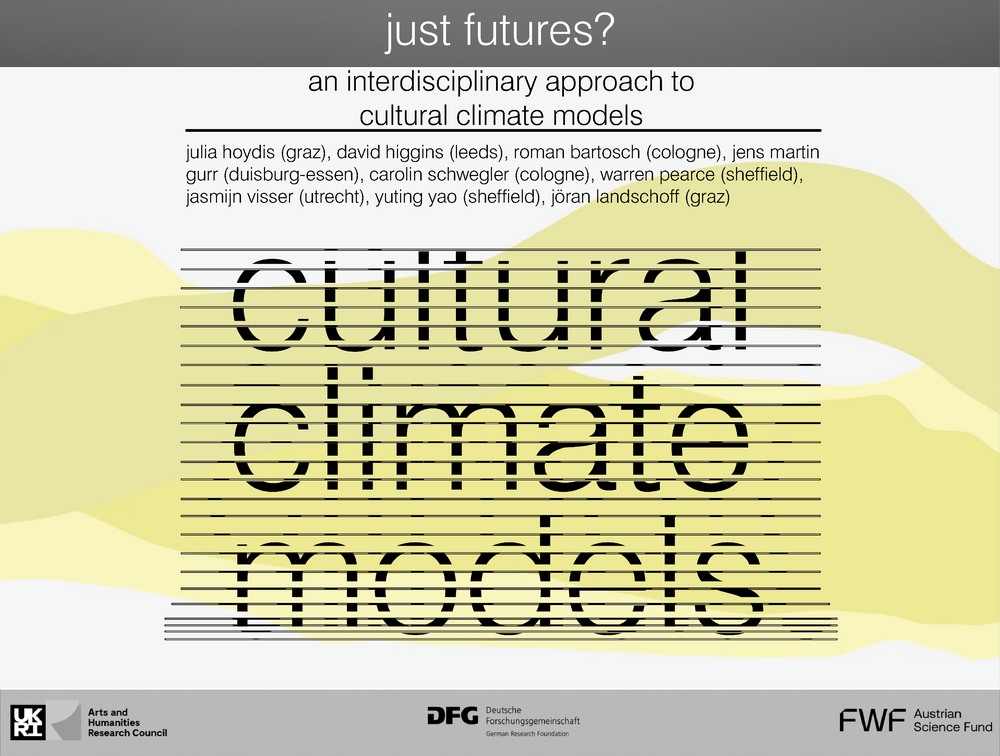The interdisciplinary project responds to calls for more humanities research on climate change by developing an innovative methodological approach to cultural models of climate futures. It focuses especially on the topic of intergenerational justice. The project group brings together literary studies, linguistics, science and technology studies and literature pedagogy to investigate how different texts - cultural forms such as literature, social media, and literature reception in educational contexts - move between seemingly neutral climate facts ("models of") and normative social values ("models for").
The project is framed by interdisciplinary model theory, which conceives of models as representations of reality that reduce complexity and serve specific purposes. Its approach to climate models (1) understands qualitative cultural modelling of climate change as necessary complement to the dominant quantitative scientific climate models, and (2) analyses the intertwining of descriptive and normative components in climate debates. The closely related sub-projects examine debates of climate change and intergenerational justice in Anglophone dramas and essays (WP 1), in social media (WP 2) and in the reception and communication of literature in criticism and education (WP 3). The project’s key objectives are: 1. to investigate how different kinds of texts engage in the cultural modelling of (un)just futures; 2. to develop an interdisciplinary approach to cultural climate models that will be of wide benefit to researchers. In addition to the OA publication of project results in the form of a special issue and articles in journals central to the disciplines involved, the project website (artistic director Visser) will document the research process and disseminate results as a virtual exhibition to a wider audience.

| Duration | 01.09.2024 - 31.05.2026 |
| Funding Funding program | FWF Internatiionales |
| Grant amount | € 197.566 |
| Unit | Department of English Studies |
| Profile area Uni Graz | |
| Principal investigator | Univ.-Prof. Dr. Julia Hoydis |
| Project staff | Jöran Landschoff |
| Project homepage | https://www.cultural-climate-models.org/ |